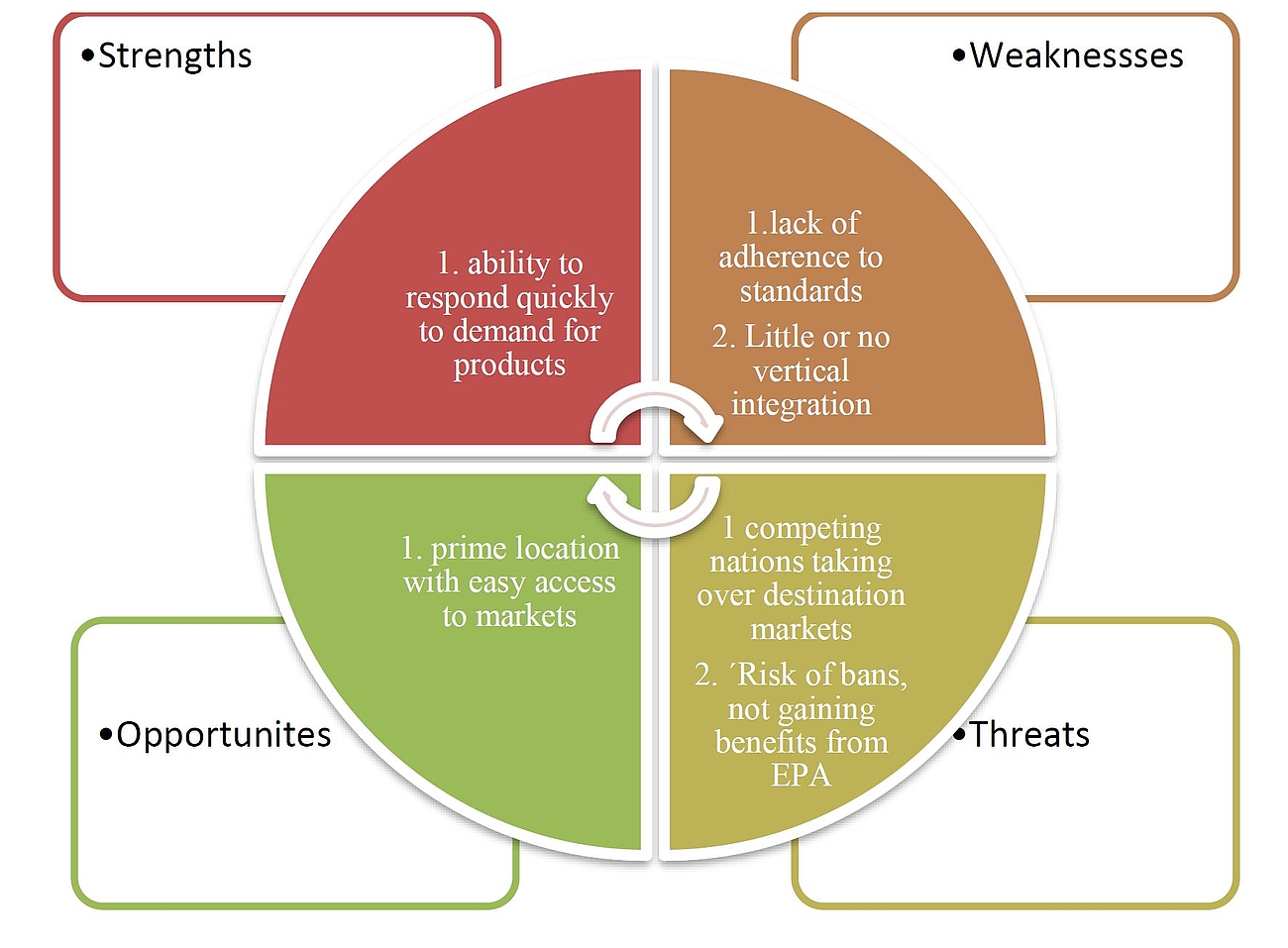Trade with Ghana
Is Ghana Equipped to Benefit from the European Partnership Agreements?
A Qualitative Multi -Stakeholder Study of Opportunities and Barriers faced by Ghanaian Fresh Fruit and Vegetable Exporters to the EU.
The Economic Partnership Agreement between Ghana and the EU largely been publicized in terms of the benefits that Ghana stands to gain in terms of duty and quota free access to one of the most important markets in the world, the European Market. However, there are several key issues that have not been fully addressed from the Ghanaian side particularly in relation to food safety standards, independent conformity assessments and the accreditation required by some certification bodies in Ghana. Perhaps, because of a lack of grassroots level appreciation of standards, Ghana had a ban placed on the export of 5 vegetables (chilli pepper, bottle gourds, luffa gourds, bitter gourds and eggplants) into the European Union. Even though the ban has been lifted as of 1st January 2018, there are many structural challenges which needed to be addressed The goal of this research was to analyse the opportunities and challenges faced by Ghanaian fresh fruit and vegetables exporters to the EU within the context of the EPA. The research made use of a combination of discourse analysis and interviews. The analysis showed that indeed, there are many structures which Ghana needed to have put in place before signing the IEPA with the EU. Further, the only way Ghana can benefit from the IEPA is to comply with the standards that have been set in the EU regarding fresh fruit and vegetables. This means equipping institutions like PPRSD which are key in the export process and acquiring the necessary accreditation for the governmental conformity assessment institutions. There needs to be a lot of education of farmers and business people about the importance of standards as a key to selling their products, improving their productivity and efficiency and as a tool for convincing their buyers of the quality of their products. The research also found that even though European standards are applied the same way to all business partners, the interviews confirmed that the standards are being made tougher all round which could potentially serve as a barrier to business people both in and outside of Europe. The tightening of the standards makes it more expensive to do business in European countries and with European companies. This could potentially erode some of the benefits that Ghanaian exporters could have derived from selling their products to European customers.
